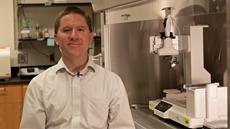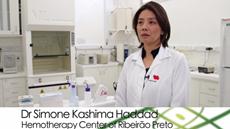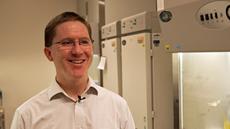- Partners for Progress in Oncology
- Accelerating Science Podcast
- Scientists' Choice Award® winners
- Blood testing
- Women in science
- SLAS
- Cell preparation, incubation & storage
- Microbiology & infectious disease
- Food safety & testing
- Cell culture
- Cancer research
- Cannabis testing
- Clinical laboratory diagnostics
- Mass spectrometry
-
More
Dr. Kyle Rohde
Burnett School of Biomedical Sciences, University of Central FloridaThe Importance of High-Quality Biosafety Cabinets for the Study of Tuberculosis
12 Jul 2019
The key to the success of tuberculosis (TB) as a pathogen is its ability to evade the immune response and so, in seeking out improved and effective new treatments, it is imperative to understand what genes and virulence factors help TB survive within a host cell. In this video interview, Dr. Kyle Rohde, associate professor at the University of Central Florida, discusses his lab's in vitro studies of TB and how they hope to address this global medical crisis. Rohde goes on to explain how the use of NuAire's biosafety cabinets provides the sterility and containment required to conduct safe infection experiments of this mycobacterium.
Share this video
Featured technology
Related Scientists
-
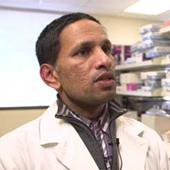 Health SciencesDr. Prakasha Kempaiah Center for Global Health, Department of Internal Medicine, University of New Mexico
Health SciencesDr. Prakasha Kempaiah Center for Global Health, Department of Internal Medicine, University of New Mexico -
-

-
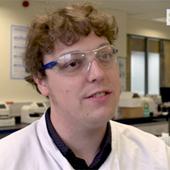
-

-
 Health SciencesDr. Mukesh Kumar Department of Tropical Medicine, Medical Microbiology & Pharmacology, University of Hawaii
Health SciencesDr. Mukesh Kumar Department of Tropical Medicine, Medical Microbiology & Pharmacology, University of Hawaii -
 Health SciencesProf. Stephen Hill Faculty of Medicine & Health Sciences, The University of Nottingham Medical School
Health SciencesProf. Stephen Hill Faculty of Medicine & Health Sciences, The University of Nottingham Medical School -

-
 Health SciencesDr. Patrick Hanley Chief and Director, Cellular Therapy Program, Children’s National Hospital
Health SciencesDr. Patrick Hanley Chief and Director, Cellular Therapy Program, Children’s National Hospital -

-

-
 Health SciencesDr. Jeanette Woolard Faculty of Medicine & Health Sciences, The University of Nottingham
Health SciencesDr. Jeanette Woolard Faculty of Medicine & Health Sciences, The University of Nottingham
Related Content
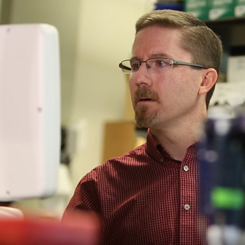
Dr. Kyle Rohde
Burnett School of Biomedical Sciences, University of Central Florida Burnett School of...Biography
Kyle Rohde is Associate Professor at UCF. His work focuses on the understanding of TB pathogenesis. MoreLinks
Dr. Kyle Rohde
Burnett School of Biomedical Sciences, University of Central Florida
Tuberculosis (TB), caused by the bacterium Mycobacterium tuberculosis (Mtb), infects ~9 million new people and claims ~1.5 million lives each year. This ongoing global health crisis stems from the lack of an effective vaccine, inadequate diagnostics and drug regimens, emergence of multi-drug resistant strains, and synergism with HIV infection. Thus, there is an urgent need to better understand how Mtb causes disease in order to develop reliable diagnostics, protective vaccines, and fast-acting drugs effective against Mtb. By taking a multifaceted approach Rohde hopes to improve understanding of this disease and add to the arsenal of tools aimed at this pathogen, we hope to make a significant contribution to the fight against TB.



